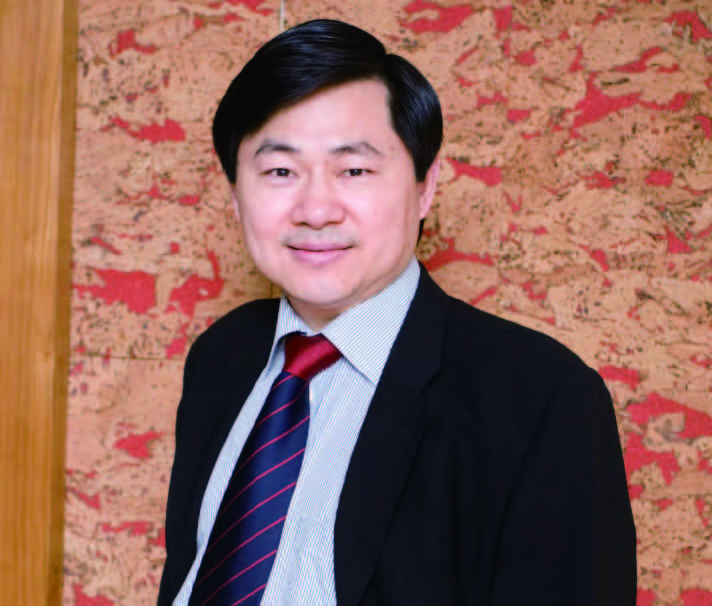Wang Huiyao: New opportunities, new responsibilities
January 17 , 2020By Wang Huiyao |
President of the Center for China and Globalization(CCG)
While continuing to be the primary engine for global growth, China is also playing a bigger role in global affairs
This year marks the beginning of a new decade. Over the next 10 years, through further opening-up to the world, China will not only achieve domestic growth but also play a larger and more multidimensional role in global affairs.
This is in line with both China’s rising stature and the evolving geopolitical context. In recent years, the world has become increasingly multipolar with the rise of China, India, Brazil and other emerging market economies. At the same time, rising transnational challenges such as global warming, rising inequality and the push back against globalization call for multilateral solutions. However, with the trend toward unilateralism, international cooperation is under strain.
Amid this changing geopolitical context and need for global governance solutions, with its growing economic clout, China is set to play a bigger role and assume more global responsibilities in the 2020s and beyond.
Economically, China will continue to be the primary engine of global growth as it opens its vast market to the world, improves the investment environment, and seeks mutually-beneficial cooperation with other countries.
The year 2020 is a crucial year for China’s opening-up. On Jan 1, the new Foreign Investment Law came into force. This year is also the final year of the 13th Five-Year Plan (2016-20) and will see the formation of the 14th Five-Year Plan (2021-25).
China’s giant and growing middle-income group offers great opportunities to other countries. With continued market opening, such as the lifting of ownership restrictions in the financial services sector this year, China continues to attract more foreign investments. In turn, international investment banks such as Citibank, HSBC and JP Morgan Chase & Co, have introduced fintech to provide high-quality services for new economy enterprises in China.
In addition to this vast consumer potential, as China’s innovation-oriented development continues, the country is leading in new technologies, including artificial intelligence, 5G and cloud computing. Driven by technology and capital, China’s traditional industries such as retail, automaking and real estate are upgrading, and new applications are also expanding. Tech firms, such as Alibaba, Huawei, ByteDance, and other unicorns, are expanding in the international market, bringing new products and services to consumers and businesses around the world.
With its growing economic influence, China also needs to think about its role and responsibilities on the world stage.
In particular, China has the potential to reinvigorate global governance. More countries are expecting China to play a bigger role in this area. In a recent speech, Alan Wolff, deputy director-general of the World Trade Organization, said that China has the ability to lead WTO reform and expressed hopes that China will help draft and implement the WTO 2025 agenda. Indeed, China should take on more international responsibilities and actively participate in the international agenda.
China is also well-placed to be a global convener and contributor of new ideas. Over the coming decade, China will continue to be a firm defender, supporter and practitioner of multilateralism. With more participation in international forums and as well as hosting its own, China is actively engaging with the world.
The New Economy Forum, successfully held in Beijing by Bloomberg and the China Center for International Economic Exchanges last November, is a good example of the later.
Platforms such as the New Economy Forum, the Boao Forum for Asia and Summer Davos serve as a window for the world to see and understand China, which is conducive to China’s further integration into the international community. Therefore, China should encourage more events organized by international institutions to be held in China. This will bring diversified ideas into China and let China’s voice be heard around the world.
We should be clear that promoting dialogue and showing more leadership in the international arena does not mean that China seeks to export its model or challenge the current international order. Rather, China wants to facilitate a more open, balanced global conversation and seek joint solutions to our shared challenges. In this way China wishes to utilize its own advantage to build consensus and improve the global governance system.
We live in a time of flux, and the coming decade will likely see more twists, turns and challenges for the world. But China’s commitment to opening-up is a powerful force that will push China to seek more opportunities. As China opens its market, Chinese people are also opening their mind to embrace the world and welcome the world to embrace China. In this way, China will develop strongly at home and be ready to take on more international responsibilities to support multilateral cooperation in the coming decades.

Dr. Wang Huiyao, founder and president of the Center for China and Globalization(CCG), an independent think tank based in Beijing.
From China Daily,2020-1-17
Topical News See more






